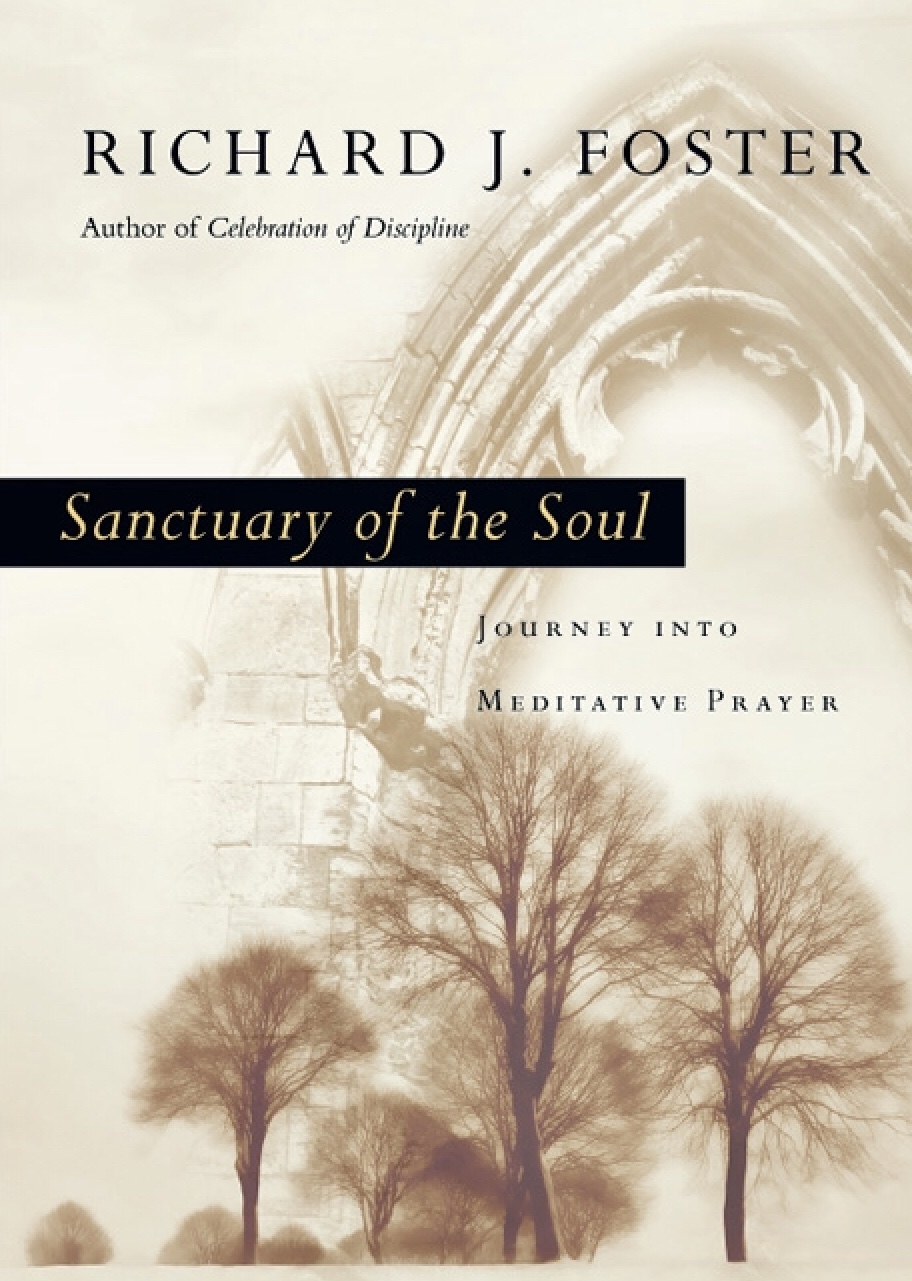Each month the good people at FaithLife give away a free ebook. For the month of June 2019 it is Sanctuary of the Soul by Richard J. Foster. I was introduced to Richard Foster while a freshman Bible major at Taylor University in the Fall of 1996 through reading his seminal work, Celebration of Discipline. While there are many books on prayer, the theology of prayer, Foster gives you a roadmap toward contemplative prayer and like handing you the keys to the car, it’s up to you to drive.
Author: jasonfletcher
Diligence

“A slack hand causes poverty, but the hand of the diligent makes rich.” Proverbs 10:4 (ESV)
It’s Monday morning. As the old commercial said, “It’s time to make the doughnuts!” For most in our culture, Monday marks the beginning of the work week. While it is easy to want to hit the snooze button one more time or to call out sick (for a “mental health day”), sometimes the hardest thing is the best thing. While rest is good and proper (see yesterday’s post), you can get too much of a good thing. The Bible contains a section on wisdom called Proverbs. One particular proverb warns against having a “slack hand.” Having a slack hand was about as good as having a slack bow, if left neglected and uncared for, it would be useless in battle. So neglecting work, (i.e., laziness) according to this proverb leads to poverty. I read an articletoday that for the second month in a row in the United States there are more available jobs than there are job seekers available. Right now, if you want to work you stand a pretty high chance of getting a job.
The “slack hand” is contrasted with the “hand of the diligent.” This is the person who is not afraid to work, who is ready and willing to work. The diligent brings pride to his or her work and workplace. The diligent seeks the to do the best job with the best attitude. The diligent seeks to repeat this day after day, week after week. The proverb commends that the hand of the diligent leads to wealth. Even if inherited or even if you happened to win the lottery wealth does not happen or remain by default. In fact, many people who come into a lot of money in a short amount of time find ways to spend it and deplete it just as fast! The only people making money off of get-rich-quick scams are the scammers, and they are working hard at it.
As someone who in this season is in a position to hire people, 90% of getting and keeping a job is showing up. So it’s Monday morning. It’s time to make the doughnuts. It’s time to get to work! If you are currently unemployed your job is to get a job! What do you need to do to make that happen?
Questions to Ponder:
How diligent am I in my job? Am I giving my best effort and attitude?
How am I encouraging my family or coworkers in their job (or studies)?
What can I do to make my workplace a better place?
Rest

“Come to me, all who labor and are heavy laden, and I will give you rest.” Matthew 11:28 (ESV)
I am so thankful that the one who designed the world created something call rest. He created the cycle of days and seasons as a natural pattern for work and rest. He created our bodies to follow this natural cycle as well. As I’m writing this on a Sunday afternoon I have just enjoyed a morning of worship with my family. I heard one person describe the weekly worship gathering as the closest taste of heaven that we get on earth. To go from an energizing morning of worship to a completely stress-free and relaxing Sunday afternoon is such a recharging experience.
Spiritually, when Jesus spoke these words recounted in the New Testament, the people he was speaking to were living in a religious system that was based completely upon their performance. They lived by a seemingly endless list of rules and demands that no one could hope to ever live up to. In the midst of this Jesus says to come to Him and He will give true rest. Rest from seeking to earn favor and acceptance based upon our performance. Freedom to receive God’s love and forgiveness.
Questions To Ponder:
How well are you resting in God’s unconditional love?
How often are you making space in your life for rest on a daily, weekly, monthly basis?
What is the biggest obstacle to finding rest in your life right now?
The Cure For Conflict Part 3: Turn It Over
“If he refuses to listen to them, tell it to the church. And if he refuses to listen even to the church, let him be to you as a Gentile and a tax collector.” Matthew 18:17 (ESV)
So when you have tried one on one to no avail. When you have taken two or three with you to verify and tried again to come together and the conflict remains. Jesus then says to a) tell it to the church and b) treat the offender as a lost person in need of salvation.
He says to “tell it to the church” and by church he means the ecclesia – the “called out” ones, the local group of Jesus followers. Now, I admit, I wish a couple of things here. I wish Jesus told us in a little more detail exactly how this is supposed to work. I mean do you get the town crier out to say “Hear ye, Hear ye?” I’m not so sure, but I do think he gives each local ecclesia, or church, the freedom to handle this step as they see fit.
The main idea, however, is not to just make this situation public. If the situation was severe enough that it was not resolved by steps one or two, in all likelihood the situation was already public. The idea is to turn the situation over. To give the conflict, the situation, the person over to God and pray for their salvation-but don’t live in fear or slavery to resolving a conflict with someone that doesn’t want to resolve it!
Jesus commands his followers to treat the unrepentant person like a tax collector or Gentile. While this means a necessary separation from full participation in community life, it does not necessarily mean shunning. Jesus didn’t shun tax collectors and Gentiles, he came to seek and save them/us. It means that even after repeated attempts at reconciliation that have been rebuffed, we should always leave the door open for restoration. We are to treat the offending party just as Christ has treated us, as a sinner in need of a Savior.
Questions To Ponder:
Is there any bitterness toward someone that I’m harboring in my heart and life right now that I need to ask forgiveness, even if I might have justification for my feelings?
What unresolved conflict do I need to surrender to God and let Him handle?
The Cure For Conflict Part 2: Trust But Verify
“But if he does not listen, take one or two others along with you, that every charge may be established by the evidence of two or three witnesses.” Matthew 18:16 (ESV)
Jesus begins his instruction on how to resolve conflict by keeping the circle as tight as possible. He understands, however, that someones when one cannot resolve conflict one-on-one, its time to seek outside help or counsel. He gives a second step to take along one or two with you. This principle was established in Deuteronomy 19:15 as a bedrock for establishing official legal testimony in the nation of Israel. Sometimes our own emotions, pride, or insecurities can feed into the conflict and make it harder to resolve. Sometimes we might have misinterpreted the situation and we need someone or some others outside of the situation who can freely speak into the situation and help a healthy resolution take place. I’ve called this step “Trust but Verify. ” This Russian proverb was made famous by President Ronald Reagan who used it in the context of his negotiations with the Soviet Union over nuclear disarmament during the 1980’s. For our purposes in seeking to resolve conflict with this step by taking along two or three others we can verify the source and on-going nature of the conflict and identify steps on how it might be resolved.
In a marriage relationship with a lot of conflict this may involve inviting a trusted Godly couple alongside, pastoral counsel, or an experienced marriage and family counselor. At work this may mean bringing in your supervisor, team leader, or hr facilitator to bring resolution to the conflict. Again, the purpose isn’t to create further division, but to bring reconciliation and restoration.
Questions to Ponder:
Is there a situation that I have already tried resolving one-on-one that I should consider seeking help to come alongside?
How can I work to resolve conflict in my own family, workplace, or community?
The Cure For Conflict Part 1: One on One
“If your brother sins against you, go and tell him his fault, between you and him alone. If he listens to you, you have gained your brother.” Matthew 18:15 (ESV)
In speaking to his followers, Jesus tells them, when faced with a situation where they have a conflict with another person to go to the person individually. I believe that 95% of all conflicts could be stopped in their tracks at just this simple point. How many conflicts begin with something that could be a matter of miscommunication or something completely unintentional?
A major problem in our culture right now is that when we have a problem with something or someone, we go straight to facebook, twitter, social media broadcasting to the world. We have a tendency to ramp up our emotions straight to outrage instead of giving each other the benefit of the doubt. What does that tell us that as a general rule when we go all public warfare when most of the time it could be resolved with a simple phone call or over a cup of coffee?
The goal of this one-on-one is not to win the arm wrestling match of conflict or to destroy your brother, but ultimately its about reconciliation and restoration – “If he listens to you, you have gained your brother.” Most conflicts end up with lose-lose situations, with carnage in its wake. How different would it look when you find reconciliation and gain the relationship, the hope, the life, and the future?
Questions to Ponder:
Who do I need to make an appointment with right now and seek reconciliation for wrongs I’ve committed? To lovingly confront someone over a wrong committed?
Why Do We Have Conflict?
Why Do We Have Conflict?
This week I’ve been studying the teaching of Jesus and one message in particular where he deals with conflict. Particularly conflict within the community of His followers. This message is found in Matthew 18:15-17. To set the stage for this topic I asked myself the question, why do we face conflict in this life?
- We live in an imperfect world.
In the perfect world milkshakes would have little or no calories. In the perfect world my car would never break down on the interstate. In the perfect world Disney would not need a “FastPass” system. Even in the most optimistic person would have to agree that this world is not the way it should or ought to be. On a more serious note, violence, injustice, and suffering all point out that the world we live in is not perfect. Try as we might to insulate ourselves from all forms of suffering or harm by very nature of the world we are not able to live 100% free from conflict.
2. We are imperfect people
Unlike the life that many like to portray on social media, just like the filters that smooth out wrinkles and the effects of age, we are an imperfect people. In fact, wherever you find people you will find problems. Anyone who tells you they are perfect is lying and has just proven the point!
If we say we have no sin, we deceive ourselves, and the truth is not in us. 1 John 1:8 (ESV)
3. We have sinister adversary
Jesus also mentioned that “The thief comes only to steal and kill and destroy. I came that they may have life and have it abundantly” (John 10:10 ESV). Sometimes we vilify other people who may bring conflict into our lives. The truth is, “people” are not our problem. There is a spiritual enemy working behind the scenes who would seek to bring conflict, disillusionment, discord, and strife to our homes, lives, and communities.
Just a few questions for thought:
Am I bringing and fostering peace in my home, work, or community, or am I a source of conflict?
How can I work against the attitudes and actions that cause conflict in my sphere(s) of influence?
If Tomorrow Never Comes

“Therefore you also must be ready, for the Son of Man is coming at an hour you do not expect.” Matthew 24:44 (ESV)
I attended a funeral last week for a 39 year old single father who suddenly and tragically passed away. Both pastors who shared in the service were related to the young man and shared family memories as well as clearly presented the gospel. One of the memories shared was related to the song “If Tomorrow Never Comes” as made famous by Garth Brooks. For those in my generation the song is instantly recognizable as it was a #1 hit at the time. The song is a sad romantic ballad that begs the question throughout – what if tomorrow never comes? It caused me to do a little self-reflection on life, let me pose a few questions that ran through my mind:
If tomorrow never comes have you made peace with God?
If tomorrow never comes do you have any unresolved conflicts within your family or with another person you need to resolve?
If tomorrow never comes have you done a few simple things to take care of your family like a last will and testament and a living will?
If tomorrow never comes is there someone you know you need to share the gospel with one more time?
Happy Mother’s Day From The Fletchers

Leading Through Encouragement
The sky is falling! In the past few days the President sent out a tweet threatening increased tariffs on products coming from China that would either directly or indirectly affect thousands of dollars on the bottom line by the end of the week. Amazon announces they are entering your business on top of the increased competition you are already facing. Even with what seems to be an endless string of positive economic news you notice your customers are more and more financially strapped and leveraged. While you strive for a harmonious workplace another office conflict has flared up again. All of this is happening on top of the normal day-to-day operations of your life.
Sound familiar? That was just Monday.
All of us face struggles wherever we lead. It is easy to focus on the negatives or the challenges and lead against them. As leaders, while it is necessary sometimes to rightly call things out, we are called to rise above. We are called not to tear people down, but to build them up. We are called, not to dismiss reality, but to frame it-to paint the vision of a positive future and then lead our teams toward that future. If we can’t lead by encouragement, we will be faced with the downward spiral of negativity which only secures our pessimistic future.
The Bible speaks to this truth when one of the early church leaders, the Apostle Paul writes, “But one who prophesies strengthens others, encourages them, and comforts them” 1 Corinthians 14:3 (NLT). To prophesy means to proclaim the truth. If you are proclaiming the truth in love, then you are strengthening, encouraging, and comforting your team. You are building them up.
If you are leading a team, leading your family, or leading yourself, how are you going to proclaim truth and lead through encouragement this week? Even if the sky is falling.

